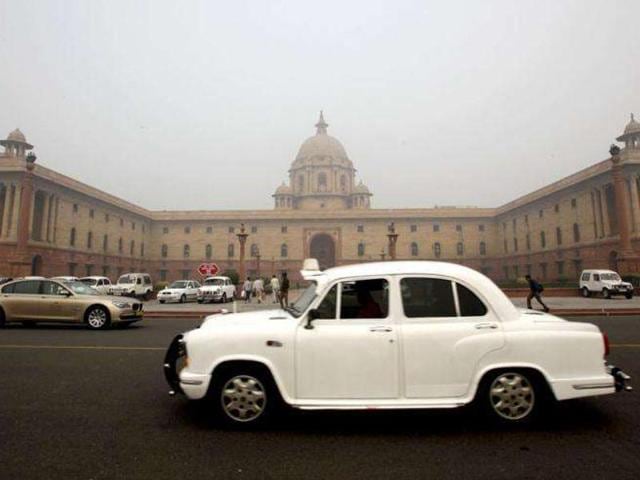Jury split over integrity clause for bureaucrats seeking posts at Centre
Mid-level bureaucrats wishing to be part of the Narendra Modi government need to be “efficient” and rated highly by their peers and seniors for “integrity” and “objectivity”.
Mid-level bureaucrats wishing to be part of the Narendra Modi government need to be “efficient” and rated highly by their peers and seniors for “integrity” and “objectivity”.

The government has added these new criteria for the empanelment of secretaries, additional secretaries and joint secretaries — the top three rungs of the bureaucracy.
The bureaucracy is divided on the merits of this move, though. A section is apprehensive that “subjective” assessment of integrity could be used to keep “politically neutral” officers out of the Centre.
Others believe if it is implemented “in a non-partisan” way, it will help honest and meritorious officers to become part of the decision-making process at the Centre and lead to better governance.
As it was, the sole criterion to determine whether an officer was fit to be empanelled to serve at the Centre was how his seniors or reporting managers rated him in annual confidential reports (ACRs).
It’s often difficult to separate the wheat from the chaff in the ACRs. Think of a situation in which a joint secretary has to be empanelled out of a batch of IAS officers whose grades in the ACRs might read 9.91, 9.919, 9.9856 and 9.92 out of 10.
These are not the exact official figures. But any retired secretary who has been part of the empanelment process might regale you with such bizarre ACR ratings.
Under the empanelment process, experts’ panels comprising retired secretary-level officers assess the ACR dossiers of officers and then all records are placed before the civil services board (CSB) or screening committee of secretaries (SCOS).
Subsequently, the CSB/SCOS makes recommendations to the appointments committee of the Cabinet, headed by the Prime Minister.
“ACRs will continue to be very important even now. But from this year, we have introduced the elements of integrity and objectivity, apart from merit. The assessment of integrity might be subjective but even the ACRs don’t always give an objective picture,” a senior government functionary involved in bureaucratic appointments said.
The prime minister’s office (PMO) was learnt to be the prime mover in this revision.
The Modi government is known to be run by bureaucrats. His interest in their appointment process is understandable.
Earlier, those involved in the process were expected to informally gather feedback about the character of the to-be-empanelled officers, sources said.
The difference now is that there are specific directions to provide feedback about their integrity. Some IAS officers posted in states said chief secretaries and seniors and juniors of the concerned officers “are getting calls from Delhi”. The Intelligence Bureau is also learnt to be involved.
“It is good if implemented in a non-partisan way. My fear is that sometimes, it may be misused to deny posting to officials who are not perceived to be amenable politically or otherwise,” said an IAS officer posted in Delhi.
Sources said there is a thrust on scouting for talent outside the IAS. In 2015, railway service officer Ashok Lohani was appointed chairman and managing director of Air India.
“There was heartburn among IAS officers over his appointment but Lohani has proved us right. We are similarly looking at other Group ‘A’ services to bring the best to the Centre,” an official said.
Sacking of home secretary Anil Goswami for his alleged attempt to interfere in the Saradha deposit scam probe and shunting economic affairs secretary Arvind Mayaram to tourism and then to the minority affairs ministry within 24 hours might have caused unease in the bureaucracy.
But the “steel frame” of India seems to have kept pace with Prime Minister Modi’s ever-flowing ideas, a trait his ministers seem to be lacking.





